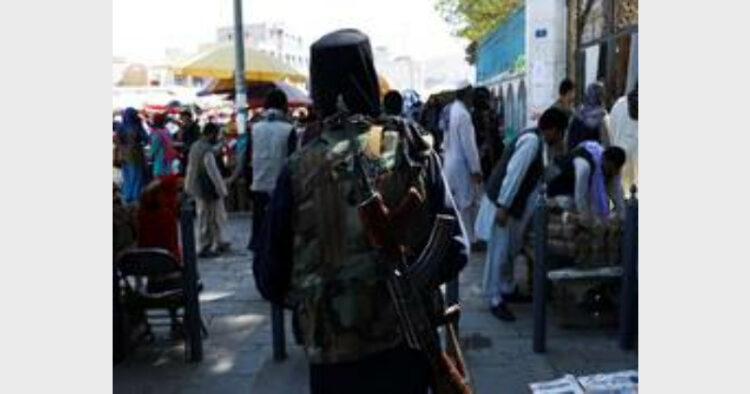Washington: Three months since the Taliban took over Afghanistan, the Haqqani Network – which was often responsible for the deadliest and highest-profile terrorist attacks on the U.S. forces-has now emerged as kingmakers in Kabul.
Writing for the War on the Rocks publication, Jeff M Smith, a research fellow at Heritage Foundation's Asian Studies Center, explained how in the new hardline government, several members of the Haqqani Network were given key ministerial positions, handing the terrorist group control of internal security in Afghanistan.
"It increasingly seems that the fall of Kabul was as much a victory for the Haqqani Network as it was for the traditional Taliban leadership."
Smith said that it is no coincidence that Khalil ur-Rahman Haqqani, a terrorist with a USD 5 million U.S. bounty on his head, was appointed to serve as the head of security in Kabul one week before the suicide bombing at the Kabul airport. "The fox was finally guarding the henhouse."
The U.S. expert termed the Haqqanis' ascendence to power a victory for Pakistan's military and intelligence agencies. "A Taliban-ruled Afghanistan was already a nightmare scenario. The Haqqani Network, with its 'track record of supporting overseas jihad,' is even more ideologically and operationally aligned with global jihadist groups like al-Qaeda and the Islamic State in Afghanistan than the Taliban is," he said.
Smith said that despite limited access to Afghanistan, the Biden administration should begin preparing for the possibility that globally ambitious terrorist groups find either direct support or a more permissive environment to operate by an Afghan government.
"It should lead international efforts to pressure the new Taliban-Haqqani government to abandon support for global terrorist groups, and it should seek to re-establish counter-terrorism capabilities in the country and broader region."
The Asian expert further warned the U.S. against avoiding falling into a "Faustian bargain" with Pakistan, exchanging access to Afghanistan to accept Pakistan's support to the very same terrorist groups the U.S. is targeting.
According to the Washington based researcher, Pakistan has skillfully leveraged Afghanistan's cruel geography to make itself indispensable to the U.S. "But U.S. policymakers have consistently failed to appreciate that Pakistan has far more to lose from an openly adversarial relationship with the United States than vice versa."
He added that Pakistan stonewalling the U.S. on counter-terrorism cooperation in Afghanistan would remove any remaining leverage and any remaining guardrails preventing the relationship from a vicious cycle of hostility and recriminations. (ANI)













Comments